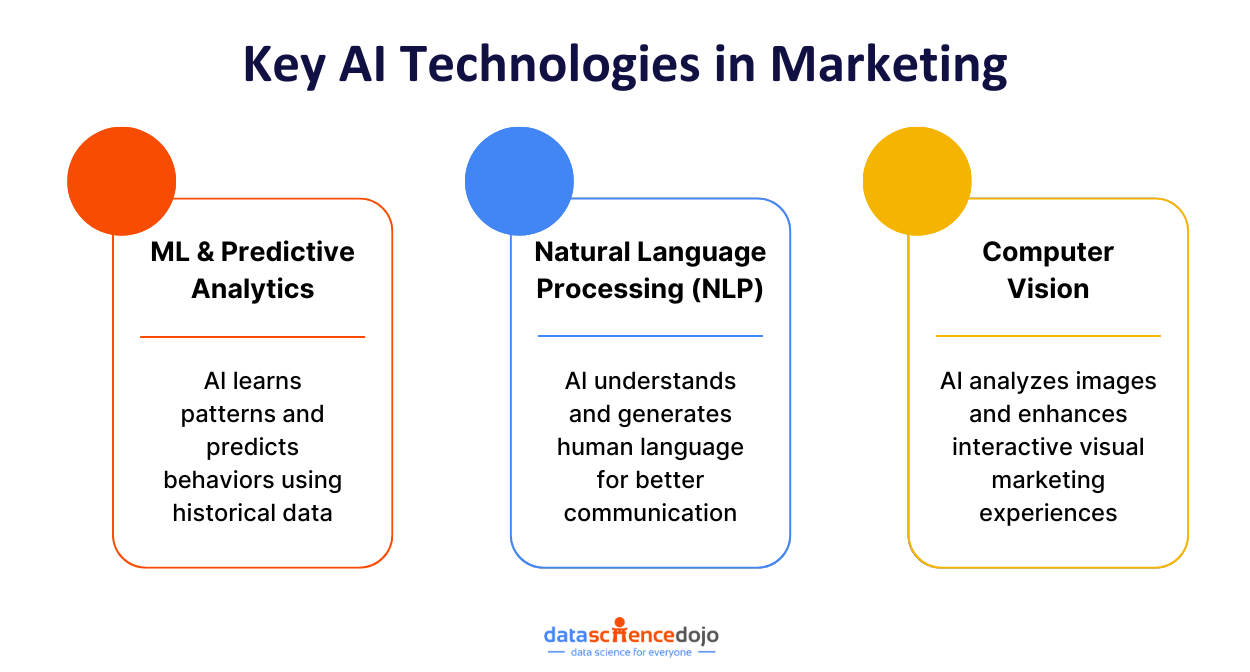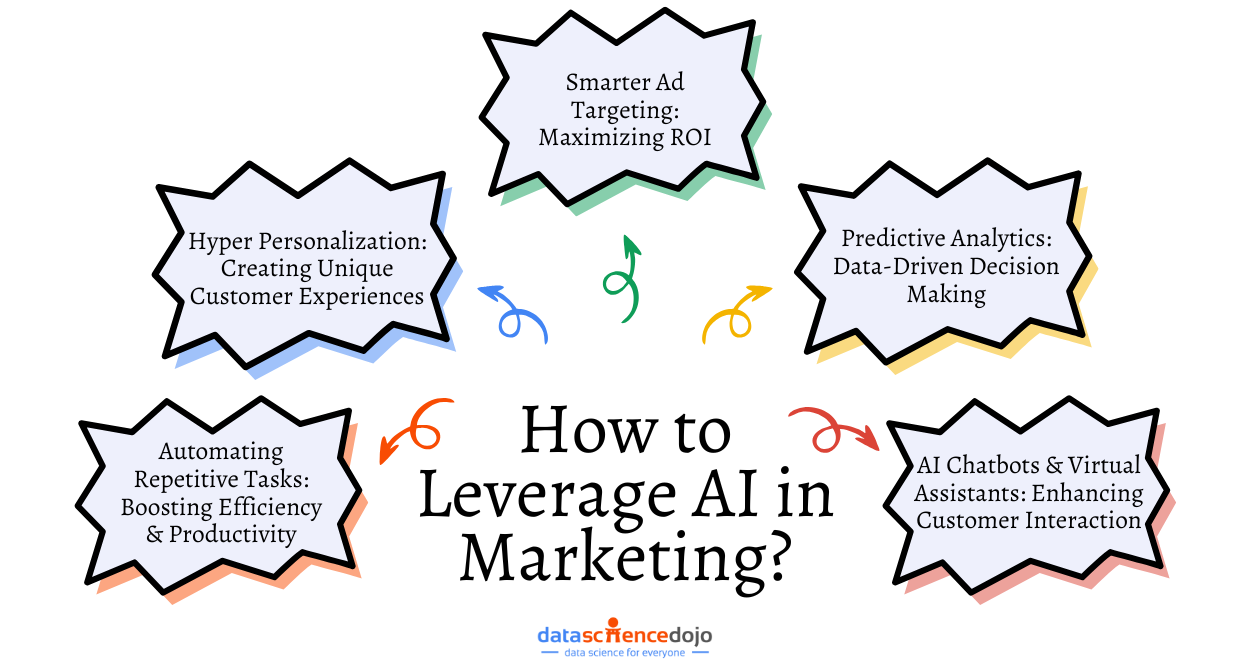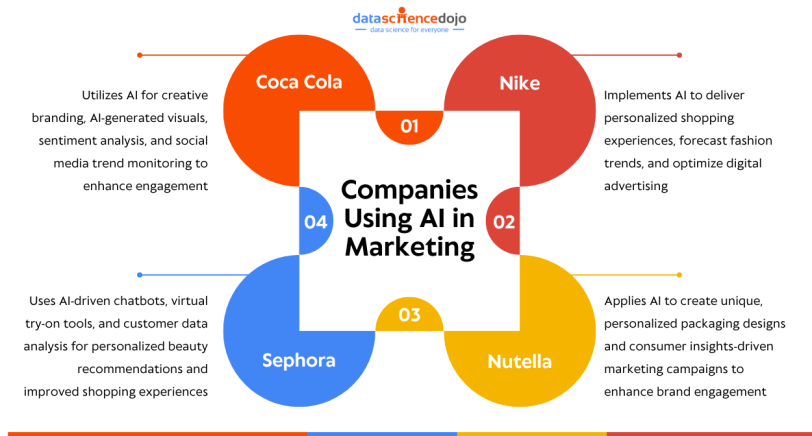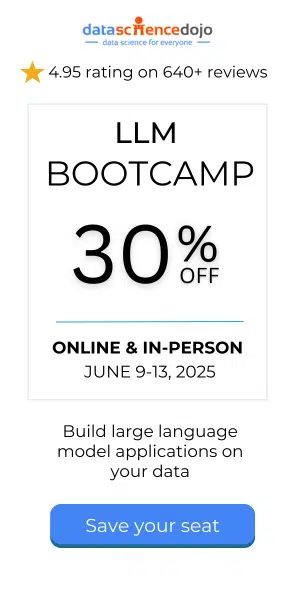Are you a marketer aiming to succeed in today’s fast-paced digital media? Then you must understand that to be successful in your journey you cannot rely only on creativity. The online world also demands intelligence, precision, and automation.
With the growing adoption of AI tools, the domain of marketing has undergone a drastic change. This has not only changed the way businesses implement their marketing tactics but also raised the market’s expectations. Since AI in marketing will grow from $12 billion in 2020 to a massive $108 billion by 2028, businesses are rapidly adopting AI tools.
From Netflix’s personalized recommendations to Amazon’s AI-powered product suggestions, top brands are already leveraging AI to connect with customers in ways never seen before. But AI is not just for tech giants; small businesses, startups, and marketers can also use AI to supercharge their campaigns.
In this blog, we’ll explore how AI is transforming marketing, from content creation and ad targeting to customer experience and predictive analytics. Whether you are a marketer looking to stay ahead of the curve or a business owner seeking smarter marketing strategies, this guide will help you unlock the power of AI in marketing.
Key AI Technologies in Marketing
Artificial Intelligence (AI) is transforming the way businesses connect with customers, making marketing smarter, faster, and more personalized than ever. By leveraging machine learning, data analytics, and automation, AI helps marketers reach the right audience with the right message at the right time.
From predictive analytics and chatbots to generative AI and computer vision, these technologies are reshaping modern marketing strategies.
Let’s dive into the key AI technologies that are revolutionizing the industry and why they are essential for today’s marketers.
Machine Learning & Predictive Analytics: Machine learning (ML) is a branch of AI that allows systems to learn from data, identify patterns, and make predictions without explicit programming. ML also includes predictive analytics that uses historical data, algorithms, and statistical models to forecast future customer behaviors and trends.
Natural Language Processing (NLP): This AI technology allows computers to understand, interpret, and generate human language. It is used for chatbots, voice assistants, sentiment analysis, and content generation. Thus, ensuring better customer engagement and enhanced communication through AI-driven conversations.
Read more about natural language processing
Computer Vision: It enables AI to analyze and interpret visual content, making it a key technology for image recognition, augmented reality (AR), and facial recognition in marketing. Brands use computer vision to enhance visual search, create interactive experiences, and analyze user engagement with visual content.
Hence, marketers can enhance efficiency, improve targeting, and create highly personalized customer experiences by utilizing these key technologies in their plans.
How Marketers Can Leverage AI?
AI in marketing has initiated a shift from traditional strategies toward data-driven, automated, and more personalized plans. AI tools enable marketers to work smarter and not harder.
Let’s explore how marketers can leverage AI to enhance their efforts and drive better results.
1. Automating Repetitive Tasks: Boosting Efficiency & Productivity
Marketers spend hours on data analysis, email marketing, social media scheduling, and reporting. AI eliminates these repetitive tasks by automating them, allowing marketers to focus on strategy and creativity.
For example, AI-powered tools like ChatGPT and Jasper AI can generate blog posts, social media captions, and ad copy in seconds. Then, there are email marketing platforms like Mailchimp and HubSpot, which use AI to personalize subject lines, automate follow-ups, and optimize send times for higher engagement.
👉 How AI helps: It saves time, improves efficiency, and reduces human error.
2. Hyper-Personalization: Creating Unique Customer Experiences
AI has enhanced the meaning of personalization from simply inserting a customer’s name in an email to delivering relevant content at the right time. AI tools analyze customer behavior, past purchases, browsing history, and social media interactions to tailor messages, product recommendations, and offers.
Its most common examples include:
- Netflix uses AI to recommend shows based on viewing habits
- Amazon suggests products based on previous searches
Moreover, marketers can also leverage AI-powered customer segmentation tools like Dynamic Yield and Adobe Sensei to create targeted campaigns that speak directly to the audience’s interests.
👉 How AI helps: It increases engagement, boosts conversions, and enhances customer satisfaction.
3. Smarter Ad Targeting: Maximizing ROI
Guesswork in ad placements is not a modern-day marketing practice where you have access to platforms like Google Ads, Meta Ads, and Programmatic Ad Buying. These platforms use machine learning to analyze which audience segments are most likely to convert and automatically optimize ad spending for better results.
Marketers can use AI to A/B test different ad creatives, identify high-performing audiences, and adjust bids in real time. This ensures ad budgets are spent efficiently and campaigns continuously improve without manual intervention.
👉 How AI helps: It reduces wasted ad spend, improves targeting, and increases ad performance.
Read about data-driven marketing leading to improved ROI
4. Predictive Analytics: Data-Driven Decision Making
Marketers often struggle to predict customer behavior and anticipate trends. AI-powered analytics tools like Google Analytics, Tableau, and IBM Watson analyze vast amounts of data to provide actionable insights into what works and what doesn’t.
It can help marketers to:
- Identify trends and shifts in customer preferences
- Optimize pricing strategies based on demand forecasts
- Predict which customers are at risk of churning and re-engage them
👉 How AI helps: It provides deep insights, enhances decision-making, and helps marketers stay ahead of trends.
5. AI Chatbots & Virtual Assistants: Enhancing Customer Interaction
Nowadays, customers expect a quick response to their queries when they reach out to brands online. Businesses have become more accessible and engaged in this form of communication since the adoption of AI-powered chatbots. These chatbots provide 24/7 customer support, answer FAQs, and guide users through the sales funnel.
Retail brands like Sephora use AI chatbots to recommend beauty products, while e-commerce companies deploy chatbots for order tracking, returns, and customer service. These AI-driven assistants improve customer satisfaction while reducing the workload on human agents.
👉 How AI helps: It enhances customer experience, improves response times, and reduces support costs.
Overall, AI is a powerful tool that can be used to improve marketing effectiveness and efficiency. As AI technology continues to develop, we can expect to see even more innovative and transformative applications in the field of marketing.
Read about AI-powered marketing in detail
Top AI Tools Every Marketer Should Know About
Whether you need to automate tasks, optimize campaigns, or enhance customer engagement, AI can help you work smarter, faster, and more efficiently. Let’s explore some of the top AI tools that marketers can use to supercharge their strategies.
AI-Powered Content Creation: Write Smarter, Not Harder: Creating high-quality content consistently can be a challenge, but AI makes it easier and faster. Tools like ChatGPT, Jasper AI, and Copy.ai help marketers generate blog posts, ad copy, email campaigns, and social media content in seconds.
Here’s a list of top AI content-generation tools
AI for SEO & Search Optimization: Rank Higher, Reach More: Want your content to rank higher on Google? AI-powered SEO tools like Surfer SEO, SEMrush, and Ahrefs help marketers find high-performing keywords, analyze competitors, and optimize content for better visibility.
AI Chatbots & Virtual Assistants: Instant Customer Support: Customers expect quick responses, and AI-powered chatbots like Drift, Intercom, and ManyChat ensure 24/7 engagement. These bots can answer questions, assist with purchases, and even provide personalized recommendations, improving customer satisfaction while reducing manual workload.
AI for Social Media Management: Work Smarter, Not Harder: Managing multiple social media platforms can be overwhelming. AI-driven tools like Hootsuite Insights help marketers schedule posts, track brand mentions, and analyze engagement metrics in real-time. AI even helps in sentiment analysis, ensuring brands stay on top of their reputation.
Learn more about social media recommendation systems
AI for Ad Targeting & Campaign Optimization: Maximize ROI: Platforms like Google Ads AI and Meta Ads AI help businesses reach the right audience at the right time, ensuring better ad performance and higher conversions.
AI for Predictive Analytics & Marketing Insights: Data-driven decision-making is key in marketing. AI tools like Google Analytics 4, IBM Watson Analytics, and Tableau analyze customer behavior, predict trends, and optimize strategies. These insights help businesses make more informed marketing decisions.
AI-Powered Image & Video Creation: Elevate Your Visual Content: AI can help brands create stunning graphics, videos, and even AI-generated avatars. Tools like Canva (AI Magic Write), Synthesia, and Runway ML make it easy to design social media posts, marketing videos, and ad creatives without needing a professional designer.
Explore the use of AI in different fields of creativity
Thus, AI is a must-have for modern marketers as they aim to drive innovation that leads to better results.
How AI is Helping Leading Companies Market Products?
By leveraging AI-powered tools, brands are boosting engagement, increasing sales, and staying ahead of the competition.
Let’s explore how some of the biggest names in business are using AI to revolutionize marketing.
Coca-Cola
Coca-Cola is using AI to revolutionize brand engagement and creative marketing. The company developed an AI-powered creative platform called Create Real Magic, allowing fans to interact with the brand on an ultra-personal level. It enabled consumers to create their own AI-powered creative artwork that could feature in official Coca-Cola advertising campaigns.
AI also helps analyze consumer sentiment and predict trends for more effective ad campaigns. It enhances their marketing strategy because:
- AI-generated visuals and branding make campaigns more engaging.
- Sentiment analysis helps Coca-Cola understand customer reactions in real-time.
- AI-powered social media monitoring tracks brand mentions and trends.
Nike
Nike uses AI to enhance customer experiences, optimize advertising, and streamline product recommendations. The brand’s app uses AI to customize product recommendations, while AI-powered advertising tools optimize ad targeting for better campaign performance.
This improves its product marketing as:
- AI-powered personalized shopping provides product suggestions based on user preferences.
- Predictive analytics help forecast fashion trends and consumer demand.
- AI-driven ad optimization ensures Nike’s campaigns reach the right audience.
Sephora
Sephora has integrated AI into its marketing strategy through chatbots and augmented reality (AR). The brand’s AI-powered chatbot, SephBot, helps customers find products, get beauty tips, and make personalized recommendations.
Moreover, Sephora’s AI-driven virtual try-on feature allows customers to test makeup products digitally before purchasing. This has transformed their marketing strategy because:
- AI chatbots provide instant, personalized beauty recommendations.
- Virtual try-on tools improve online shopping experiences.
- AI-driven customer data analysis helps create hyper-personalized campaigns.
Nutella
Nutella has taken AI marketing to the next level by using AI-generated designs for its product packaging. In a campaign called “Nutella Unica,” AI created 7 million unique label designs based on customers’ social media profiles, giving them personalized and collectible packaging.
This helped with its branding as:
- AI-generated packaging creates unique and engaging customer experiences.
- Personalization strengthens brand connection and loyalty.
- AI-driven consumer insights help Nutella create targeted marketing campaigns.
Read about: The rise of AI-driven technology in the gaming industry
Thus, it is safe to say that AI is helping top companies stay ahead in competitive markets. Brands that embrace AI can enhance customer experiences, improve targeting, and drive higher conversions.
AI in Marketing: The Future is Now
AI is redefining how businesses connect with customers. From personalized recommendations and automated ad targeting to predictive analytics and AI-powered chatbots, artificial intelligence is helping marketers work smarter, optimize campaigns, and drive better results.
While leading brands like Netflix, Amazon, Coca-Cola, and Nike have already embraced AI, it is not just for global giants but businesses of all sizes. Enterprises can leverage AI tools to scale their marketing efforts, improve efficiency, and stay ahead of the competition.
As AI technology continues to evolve, marketers who adapt will unlock new possibilities, enhance creativity, and deliver more impactful campaigns. Whether you’re a startup, a growing business, or a global brand, AI is the key to staying relevant and competitive in the modern-day market.
ng years using artificial intelligence
Artificial intelligence (AI) is already having a major impact on digital marketing, and this is only going to increase in the coming years. Here are some of the key trends that we can expect to see:
-
Hyper-personalization: AI will be used to create hyper-personalized marketing campaigns that are tailored to the individual needs and preferences of each customer. This will be made possible by analyzing large amounts of data about customer behavior, such as their purchase history, browsing habits, and social media interactions.
-
Automated decision-making: AI will be used to automate many of the time-consuming tasks involved in digital marketing, such as keyword research, ad placement, and campaign optimization. This will free up marketers to focus on more strategic tasks, such as creative development and campaign planning.
-
Augmented creativity: AI will be used to augment the creativity of human marketers. For example, AI can be used to generate new ideas for content, create personalized product recommendations, and develop innovative marketing campaigns.
-
Voice search optimization: As more people use voice assistants such as Siri, Alexa, and Google Assistant, marketers will need to optimize their content for voice search. AI can help with this by identifying the keywords and phrases that people are using in voice search and optimizing content accordingly.
-
Real-time marketing: AI will be used to enable real-time marketing, which means that marketers will be able to respond to customer behavior in real time. For example, AI can be used to send personalized messages to customers who abandon their shopping carts or to offer discounts to customers who are about to make a purchase.
These are just a few of the ways that AI is going to transform digital marketing in the coming years. As AI technology continues to develop, we can expect to see even more innovative and transformative applications.










